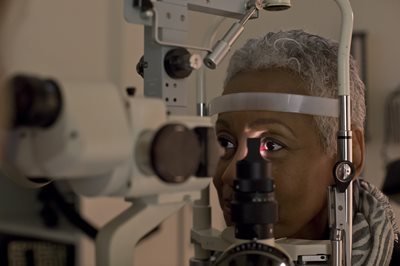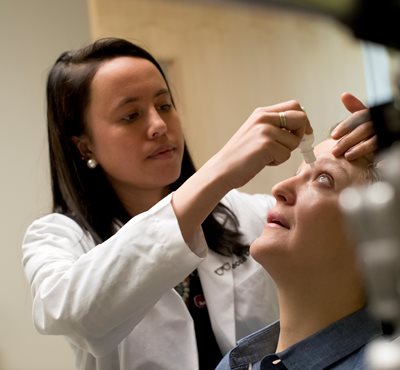Glaucoma – What you Need to Know
Glaucoma is a group of diseases that damage the eye’s optic nerve and can result in vision loss and even blindness. About three million Americans have glaucoma and it is the second leading cause of blindness worldwide, according to the World Health Organization. Often called the “sneak thief” of sight, people with most forms of glaucoma do not have symptoms until the optic nerve is already severely damaged. If diagnosed early, the disease can be controlled and permanent vision loss can be prevented.
Know Your Glaucoma Risk
 Anyone can get glaucoma, but certain groups are at higher risk. Risk factors for glaucoma include:
Anyone can get glaucoma, but certain groups are at higher risk. Risk factors for glaucoma include:
- Race. Glaucoma is the leading cause of blindness for African Americans.
- Age. People age 60 and older are more at risk for developing glaucoma.
- Family history. People with a family history of glaucoma are more likely to develop the disease, especially those with a sibling who has the condition.
- Decreased corneal thickness. People with a thinner cornea are at greater risk of glaucoma.
- Diabetes. People with diabetes are two times more likely to get glaucoma than people without diabetes.
Diagnosis
Eye doctors can check for glaucoma as part of a comprehensive dilated eye exam. The exam is simple and painless. Your expert optometrist at The Eye Institute will give you eye drops to dilate (widen) your pupil and then check your eyes for glaucoma and other eye problems. The exam also includes a visual field test to check your side vision.
Treatment
 While there is no cure for glaucoma, there are certain treatment options available to delay the progression of the disease.
While there is no cure for glaucoma, there are certain treatment options available to delay the progression of the disease.
Glaucoma can be treated with eye drops, oral medicine, laser surgery, traditional incisional surgery, newer minimally invasive surgical alternatives or a combination of these methods. The goal of any treatment is to prevent loss of vision, as vision loss from glaucoma is irreversible. The good news is that glaucoma can be managed if detected early, and that with medical and/or surgical treatment, most people with glaucoma will not lose their sight.
If you have any of the above risk factors and have not had an annual eye exam in the last year, call The Eye Institute at 215.276.6111 to make an appointment today.